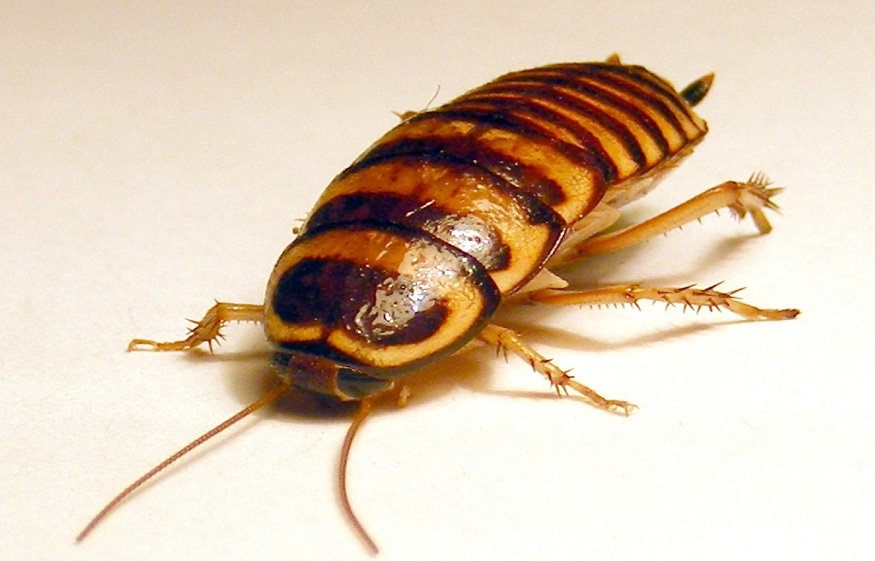
Thanks to COVID-19’s amendments, 2020 was a memorable year for renters.
Some tenants were able to negotiate lower rent payments and were shielded from the possibility of eviction due to numerous government moratoria intended to uphold their rights should they have been adversely affected by the economic effects of the health crisis.
The right to live in a house free of pest infestations, if the cause isn’t of their own choosing, is one of the many criteria that haven’t been altered despite the fact that some other aspects may have. This right applies to both renters and landlords.
A frequent problem for renters and landlords is figuring out who is in charge of pest management because there is no law that clearly states who is accountable for solving the problem when an epidemic arises.
If you are a renter, it is crucial to notify you of a significant pest problem to the landlord as soon as possible and to regularly maintain your home in excellent shape to reduce the likelihood of an epidemic. If you are a landlord, you must make sure that any pest issues are resolved before you place your rental property on the market, regardless of whether you are managing the property yourself or through property management.
It’s better to search for “best termite control brisbane” or “best termite pest control brisbane/near me” to keep the property protected from termites. With routine inspection, any property can stay elevated from not only termites but all kinds of pests easily.
But the main question is who should contact them?
The Obligations of the Owner
Before the renters come in, the property must be in a habitable state, which is the owner’s responsibility. Before moving into a house, new renters seldom check for termites or even consider them. In order to maintain the property’s structural integrity, the owner must have the structure regularly examined for termites. The good news is that regular termite inspections are not necessary to maintain the property’s security. If you operate a company, you may discuss a routine with a local pest control expert that will keep your property consistently guarded.
The Obligations of the Tenant
The tenant’s behaviour may have an effect on the surroundings of the property. Keeping a watch out for water problems is one-way renters may help with termite prevention. A termite infestation might be made more likely by water issues since these pests often require damp, fertile soil to live.
Keep an eye out for possible issue areas, such as a downspout that isn’t functioning properly or an air conditioner that has too much condensation if you’re the renter. Lessening the likelihood of termites migrating into the property may be accomplished by having your landlord make immediate repairs to these kinds of problems.
By keeping a look out for swarmers, tenants may also aid in the prevention of termites. Termites searching for a new location to build a colony may be present if swarmers are present. Tell your landlord if you think you saw swarmers so that he or she can take appropriate measures.
Is Pest Control Included In Your Leasing Agreement?
Your tenancy agreement should be your first port of call if you are experiencing an infestation or epidemic (lease).
In certain circumstances, the lease will expressly state whose obligation it is to deal with a pest problem.
If there are dogs present, this is frequently the case since the lease usually stipulates that renters must flea-fumigate the property.
A renter should investigate the property before signing a lease and have language included in the contract protecting them if they believe there is an issue.
How to Resolve a Pest Issue in Your Rental Home?
The first step in finding a solution that works for everyone is negotiation, and in these early phases, remedial action is frequently possible. Either party may seek the relevant state tribunal for a decision in severe circumstances when you are unable to reach an agreement.
What to do if a disagreement arises:
1. Keep in touch with your landlord or property management
To discuss the situation, schedule a meeting or phone contact with your property management or landlord. By doing this, the stage will be set for a positive working relationship.
If you find yourself having to provide precise times and dates of when things occurred, keeping emails and taking notes of any spoken conversations might be helpful.
2. Document the issue using pictures.
Take pictures of the pest control problem to document it. Utilizing a smart phone for this will also allow you to log the dates and times that problems occur.
3. If assistance is required, contact the appropriate government agencies.
If you need more advice, get in touch with the tenancy tribunal in your state; they’re a terrific resource and cost you nothing.
After both the parties have come to an agreement, search for “termite pest control brisbane” or “termite solutions brisbane/near me” online
The Advantages of Termite Prevention for All Parties
The owner and the renter of a rental property both benefit from termite prevention. By assisting you in avoiding expensive damage, termite prevention as the owner safeguards your investment. It will be less disruptive to your routine if you, as the renter, help the owner keep an eye out for prospective issues, such as the need to temporarily vacate the property for structural fumigation.
Both homeowners and tenants may have issues as a result of termites. It is advisable to spend money on proactive termite protection if you are the owner. The best chance of keeping termites out of your home is if you can get your renters to assist you in keeping an eye out for potential trouble areas.
Professional termite control is the only and the best protection against termites. They will not only help to get rid of them but can stop them from entering a property.






